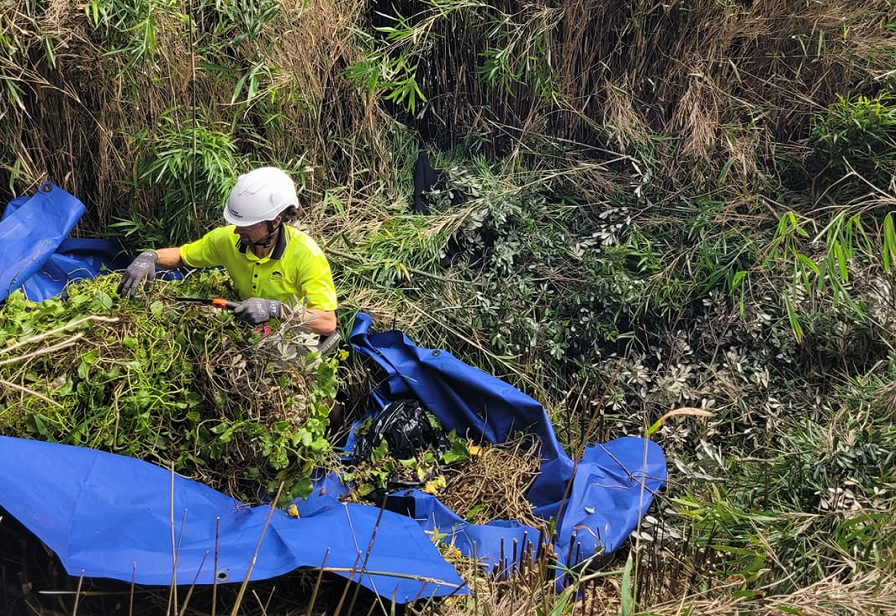Taranaki Regional Council is working to eradicate pest plants from 570 sites around the region – about three times as many as six years ago.

That’s excellent news, according to Council Environment Services Manager Steve Ellis.
“To get rid of pest plants, we have to know where they are. Most of the sites identified recently would have been quietly spreading and getting worse for many years. Now we can do something about it.
“The Council has controlled known infestations of various pest plants for decades however in the last couple of years we have really stepped it up. We have been carrying out more surveillance across the region, working strategically to detect infestations of those pest plants that pose the biggest threat to our native ecosystems.
“It’s also great to see a growing community awareness of the importance of biosecurity, what plants to look out for and what to do about suspicious plants. A great example of this was the massive response from the Fitzroy community when we asked for sightings of moth plant. The new sites they reported have kept us busy, but we’re not complaining!
“It’s important to remember our kids and grandkids won’t be able to enjoy our incredible biodiversity in the future without a collective approach to biosecurity today.”
The Regional Pest Management Plan for Taranaki lists five plants the Council directly controls, namely, climbing spindleberry, giant reed, madeira vine (or mignonette vine), moth plant and Senegal tea. The goal for these plants is eradication. Another 11 plants and two animals are classed as sustained control pests, which means the land owner or occupier is responsible.
Of the active direct control sites, 43% are moth plant, 37% madeira vine, 13% giant reed, 7% climbing spindleberry with just two sites of Senegal tea.
Pest plants are a huge threat to Taranaki’s native biodiversity as they smother native plants and spread easily, which makes control an ongoing challenge.
“Unfortunately it’s rarely a quick fix. With the direct control sites, our biosecurity officers or contractors have to make multiple visits before we can be confident the plant is eradicated,” Mr Ellis says.
For some plants that may take up to 20 or 30 years.
The Council does direct control on public and private land, at no cost to the landowner. If people spot one of the five plants on or near their property, they should leave it alone and immediately let the Council know.
“We have had a few instances recently where well-meaning locals have tried to deal with these plants themselves, but have inadvertently spread it either when moving it or disposing of it.”
If you see or suspect a direct control plant, please contact the Council on 0800 736 222 or email biosecurity@trc.govt.nz with a photo and exact location if possible. Do not touch it or attempt to control it. Click here for more details.